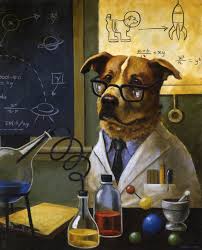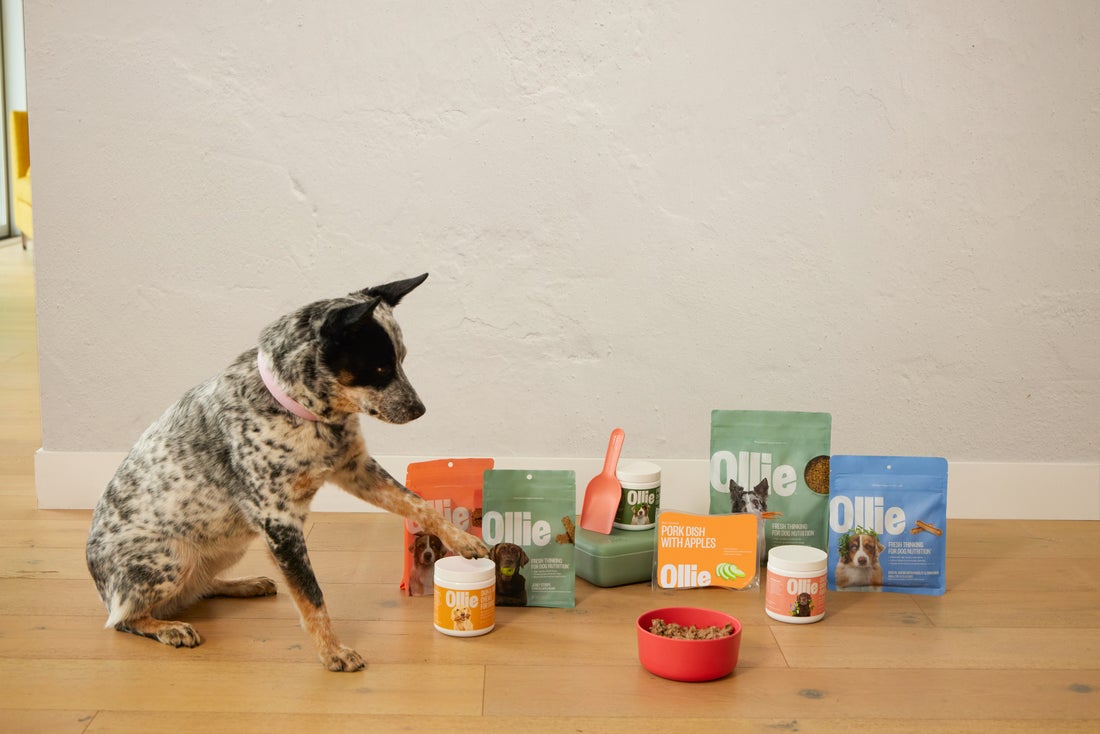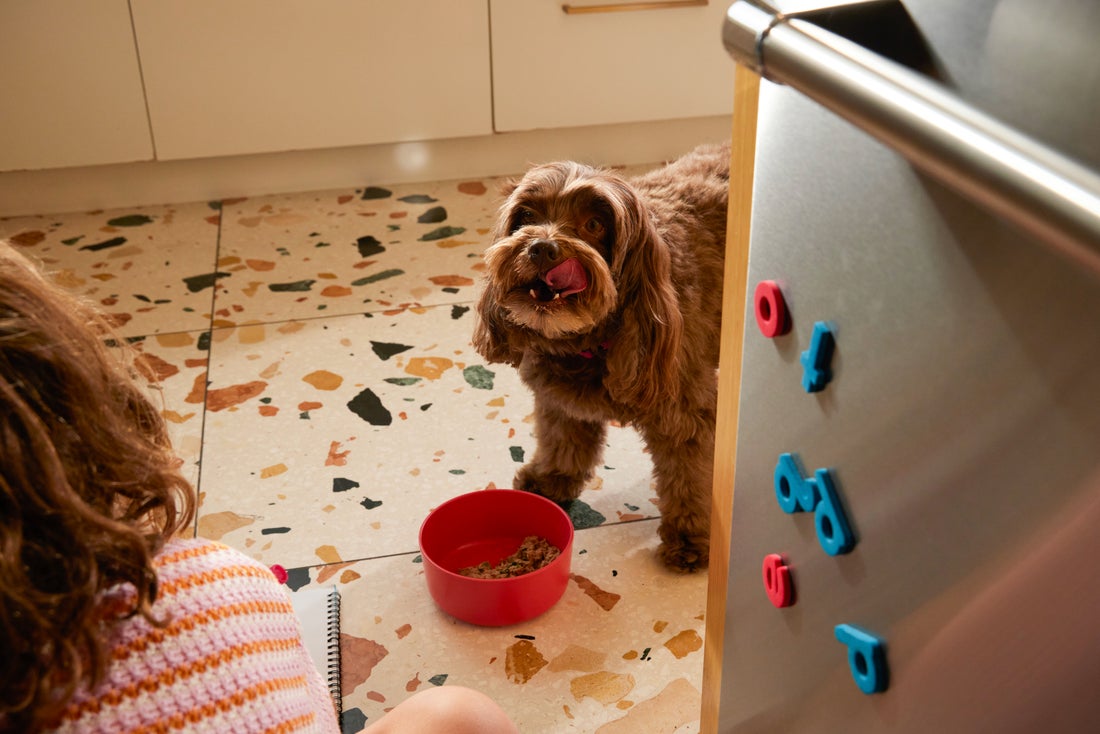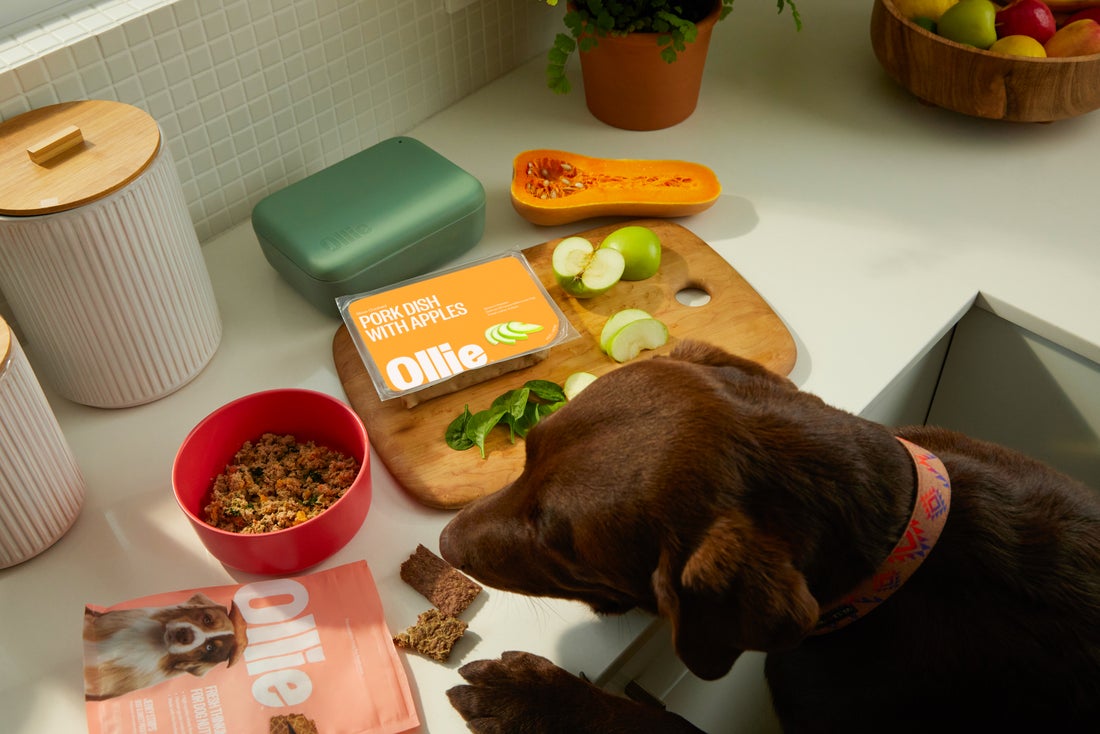Hey Ollie blog readers! We’re offering you an exclusive 60% OFF your starter box! Try now!
Okay, kids, time for a science lesson. And a vocab lesson. Let’s call it a scie-cab lesson. As a responsible pet parent, you’ve started educating yourself on your dog’s diet. You’ve been schooled on mis-leading labels that are more marketing than meaning, and you’ve learned that Vitamin C and vegetarianism are hipster values that dogs don’t need.
But let’s downward dog for a minute and examine another aspect of canine nutrition: organic and inorganic minerals (and why you should care about them).
Inorganic minerals come from soil and water. (Think calcium, copper, iron and zinc.)
Organic minerals come from plants and animals. (Think amino acids and citric acids.)
Dogs need organic and inorganic minerals alike, but inorganic minerals cannot be absorbed through digestion without being attached to an organic compound. Put simply, inorganic minerals rely completely on the buddy system to make it into your dog’s system. Without an organic buddy, it’s just a straight slide from tongue to turd with no nutritional benefit at all.
The hookup of inorganic minerals with organic compounds happens through a process called chelation (which sort of sounds like a made-up rapper word, but it’s a legit scientific term, yo). You’ll probably notice the term "chelated minerals" on dog food labels, and this means that the manufacturer paired up the organic and inorganic couples in advance to give maximum nutritional benefit to your dog.
Now, you may be asking yourself if you need to do a little additional chelation for your four-legged, and the answer is probably not. A well-balanced diet for a dog with normal activity levels will get the right amounts of chelated minerals without any supplementation. If your dog is outside the "normal" range, either in age (very old or very young), size (very large or very small), or activity level (very active), you should talk to your vet and assess it together.
And don’t ever get suckered into over-the-counter supplements for dogs. These are gimmicky and can be dangerous. Let’s call them gimmangerous.
Class dismissed.
The Ollie blog is devoted to helping pet parents lead healthier lives with their pups. If you want to learn more about our fresh, human-grade food, check out MyOllie.com.
Tagged As:

The nutrition your dog needs,
the food they want.

Enjoying our articles? Subscribe our Newsletters and get new articles directly to your inbox
You might also like
18 July 2025
6 MINS READ
Can You Mix Fresh Dog Food With Kibble?
If you’re feeding your dog kibble but want to upgrade their bowl, you’re not alone. Many pet parents ask if they can mix fresh dog food with kibble to get some of the benefits of fresh food wi…
by Ollie Pets
18 July 2025
5 MINS READ
Does Fresh Dog Food Help With Weight Loss?
If you’ve noticed your dog carrying a few extra pounds, you’re not alone. According to the Association for Pet Obesity Prevention, over half of dogs in the U.S. are overweight or obese. Extra …
by Ollie Pets
18 July 2025
4 MINS READ
Is Fresh Dog Food Cooked or Raw?
When you hear “fresh dog food,” it’s normal to wonder if that means raw meat or something cooked. After all, fresh just means it’s not dry kibble or canned food packed with preservatives. …
by Ollie Pets







